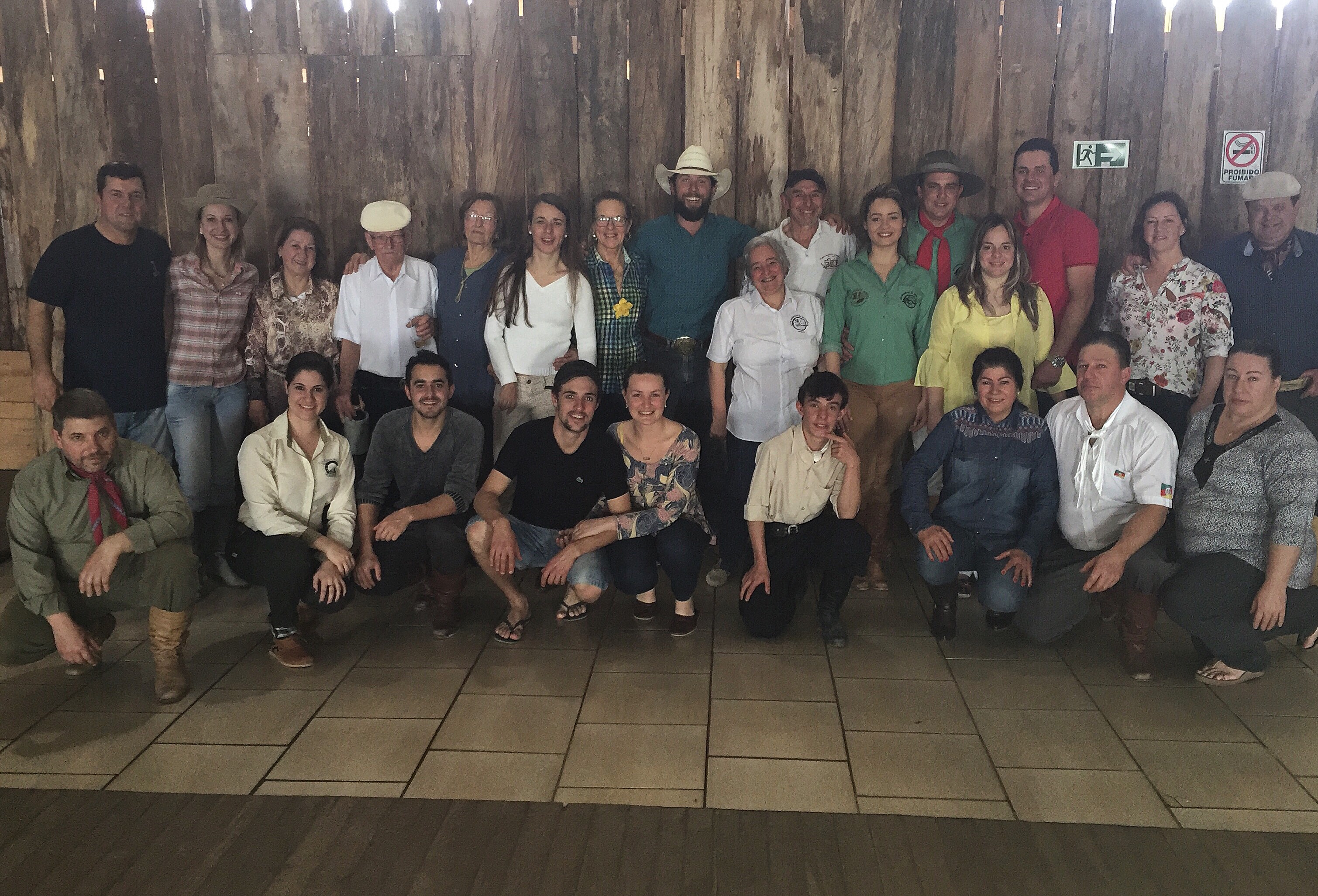Before departing the city of Santiago, I had to make plans to send the support vehicle ahead. Without Mark, who returned to Canada for a month, I now had to find a driver everyday to help me move the large van forward, 30 kilometres at a time.
“Filipe don’t worry, we will find a good place for you to spend the night and will leave the van there for you,” my new friends from Santiago said in the early morning.
I thanked them for their help and started my journey south. The next four days I spent trekking, a kind soul would drive the van ahead for me. On this journey, I am constantly reminded of how kind my fellow human is! Maybe one of the biggest lessons I will take from Long Riding.
I arrived in Jaguari to an all out horse parade. Juarez Bidinoto, the leader of the local horseman, welcomed me from atop his mare just outside of town. Alongside other riders, he led me into his beloved Jaguari.
“The name of the town came from the large amount of Jaguars in this area back in the day,” he filled his chest to talk about his home.
We paraded through the small town as people filled the sidewalks to take photos or simply wave us through. Shortly after 4pm we arrived at Juarez’s house. I fed the mares and turned them out in a picturesque pasture near by. When we returned to his home, it was like I had been a part of Juarez’s family for decades. His father, an elderly man with snow-white hair, held Cluck Norris in his arms like a baby.

“I’m going to take care of this little rooster while you are here, no need to worry,” he said opening a toothless smile.
Juarez’s mother came running from the bar she runs next door and gave me a big hug. “Welcome to your home,” she yelled holding me tight like my own mother. Her daughter, who runs a hair salon in the house across the street grabbed me by the arm and showed me where I would sleep while I rested in Jaguari.
I was in the middle of a big, crazy Italian family and I loved it! Just like my own, it gave me great comfort.
“Tomorrow I will take you to see the wineries in the area, Jaguari is known for its great wine,” the short, blue-eyed gaucho said over a traditional barbecue.
For the next two days my host Juarez, took me under his wing and showed me Jaguari.
First we drove to a local vineyard, on the outskirts of town owned by one of his good friends. The elderly gentlemen, of italian descent as well, showed me his grape plantation and explained how long his family has been in the business.
“My grandfather started the vineyard when he came from the old country. He passed it on to my father and now it’s in my hands,” he said looking out over the horizon.
From the Vineyard we drove to the Jaguari Wine company – a coop in the centre of town that purchases grapes from local producers and makes different types of wines. I was able to see the large barrels that hold the wine, the bottling plant, and their main store.
“We started in 1932 with the coop and have been going strong ever since,” the director told me as we toured the factory.
Next we visited the Grotto Our Mother of Fatima, built in a cave system extending 400 metres in length – one of the longest in South America. The labyrinth of caves in a small town only 20 kilometres from Jaguari, lead to a gorgeous waterfall named the Bride’s Veil. It was a gorgeous site and I loved seeing it.

The next morning we drove out to a farm to slaughter a sheep for lunch. Some people may have a hard time seeing an animal die in front of them, but I think it’s quite natural. If I am going to eat meat, well then I must have to respect to see that animal take its last breath.
Seu Joao, Juarez’s father helped two young men tie the sheep upside down by its back legs. Hanging from a thick piece of wood, he stabbed the animal on the left side of its neck using a sharp knife. The sheep twitched for a few seconds but died quite quickly.

“Now we removed the skin,” he said cleaning the knife.
I am always amazed at how fast the Gauchos can skin an animal. In less than 20 minutes, the sheep was skinned and the intestines were cut out. Seu Joao placed the meat in two large bags and we carried it to the car.
At the local CTG (Centre of Tradition Gaucha) we roasted the sheep in a large fire with several people from town. Together we shared this delicious feast and celebrated our new friendship.
“I know this is normal for you Filipe, you must meet hundreds of people, but for us it isn’t and we are going to miss you. You are part of our family now,” Juarez said with a wide smile.
